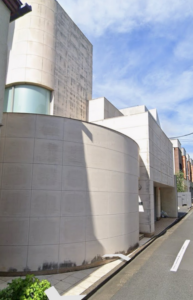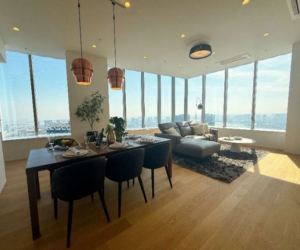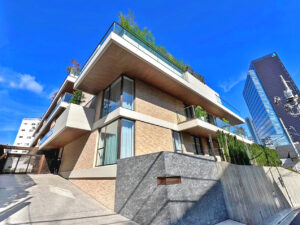(Refined architecture meets enduring value — front view of a 498 sqm residence in Shoto.)
A Rare Opportunity in Shoto, Shibuya — Refined Living and Resilient Value in Tokyo’s Premier Residential District
Located in the heart of Shoto 1-chome — a neighborhood long revered as the pinnacle of luxury living in Tokyo — this exceptional residence offers not only architectural presence and privacy, but also rare long-term investment stability.
Just a few minutes from the energy of Shibuya, Shoto has quietly retained its status as Tokyo’s most exclusive low-rise residential enclave. It is home to embassies, private schools, cultural institutions, and elegant tree-lined streets — protected by strict zoning that limits density and preserves its refined character. This balance of serenity and accessibility makes it a perennial favorite among executives, artists, and international families alike.







